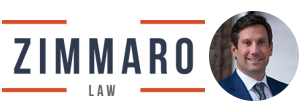1. Call (911). This should ensure that, if necessary, you receive prompt medical attention and, in most cases, a police report is generated and citations are issued. If any of the vehicles are not driveable or there are injuries then, the police should always be called.
2. If police are not present, do not leave the scene without getting the name, address, driver’s license number, license plate, and insurance information of all drivers involved. Even if you think there is no damage to your car and you are not hurt, you should always obtain this information. Sometimes symptoms caused by the impact of an accident do not manifest for days. Leaving the scene without providing such information is a criminal offense.
3. If possible, obtain the name and contact information of any third-party witnesses. If the police are present they will usually obtain witness statements and contact information.
4. Seek prompt medical attention and do not hesitate to go to the hospital if you are having any significant problems. If you are having any concussion symptoms, such as: headaches, dizziness, nausea, problems with vision, make sure tests are done to check for a head injury.
5. Do not provide any written or recorded statements to any insurance company, investigators, or other involved party until you consult with an attorney.
6. As soon as possible, report the accident to your insurance company. Your auto insurance company is responsible for paying for repairs to your vehicle regardless of the cause of the accident. If the accident is the fault of another driver your insurance company may seek reimbursement from their insurance company.
7. When reporting the accident to your insurance company, you will receive a claim number. This claim number is to be given to the provider(s) of any health care you may receive as a result of the accident. The doctor(s) or hospital(s) will then bill your insurance company for any medical benefits that may be part of your coverage. Any medical expenses in excess of these benefits should be billed to your personal health insurance policy, or will remain your responsibility if you do not have such insurance. If the accident is the fault of another driver, excess medical expenses along with other damages may be recoverable by you in a subsequent personal injury action.
8. Take extensive pictures of the damage to your vehicle before any repairs are made as well as any sustained injuries. Photographs of such damage(s) are often important evidence in a subsequent lawsuit.
9. FOR A FREE CONSULTATION RELATED TO AN AUTOMOBILE ACCIDENT, CONTACT DAVID ZIMMARO, ESQUIRE DAY, EVENING, OR WEEKEND AT (412) 260-6540.
